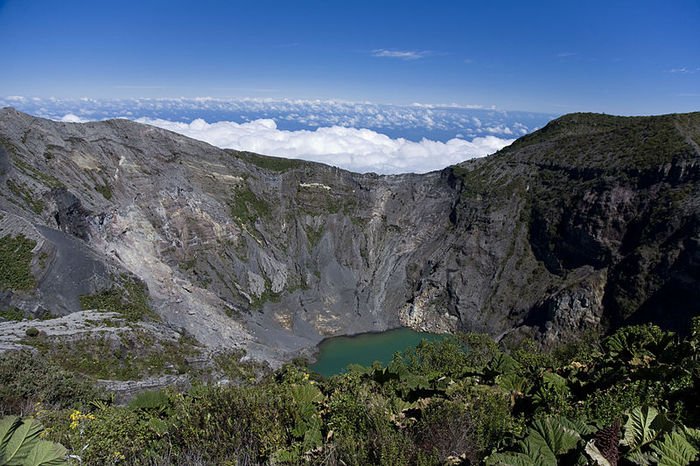The crater of Costa Rica's Irazu volcano. Credit: Rafael Golan, Wikipedia, Creative Commons
NEW YORK, July 31 (UPI) -- A Costa Rica volcano may have been fast-tracked for eruption triggered by magma rising over a few short months rather than thousands of years, researchers say.
A study by scientists at Columbia University is the latest to suggest deep, hot magma can set off an eruption fairly quickly, a university release said Wednesday.
That finding, from a study of Costa Rica's Irazu volcano, could potentially provide another tool for detecting an oncoming volcanic disaster, the researchers said.
"If we had had seismic instruments in the area at the time we could have seen these deep magmas coming," said study lead author Philipp Ruprecht, a vulcanologist at the university's Lamont-Doherty Earth Observatory. "We could have had an early warning of months, instead of days or weeks."
The 10,000-foot Irazu volcano erupts about every 20 years or less.
While most vulcanologists have long assumed mantle magma feeding eruptions rises and lingers for long periods of time in a mixing chamber several miles below a volcano, a study of Irazu's eruption history suggests some magma may travel directly from the upper mantle, covering more than 20 miles in a few months, the Columbia researchers said.
"There has to be a conduit from the mantle to the magma chamber,"study co-author Terry Plank, a geochemist at Lamont-Doherty, said. "We like to call it the highway from hell."
Chemical studies of ashes from Irazu eruptions showed the erupted magma was so fresh it had to have come directly from the mantle without a long period of collecting in chambers below the volcano.
"The study provides one more piece of evidence that it's possible to get magma from the mantle to the surface in very short order," said John Pallister, who heads the U.S. Geological Survey Volcano Disaster Assistance Program in Vancouver, Wash. "It tells us there's a potentially shorter time span we need to worry about."















